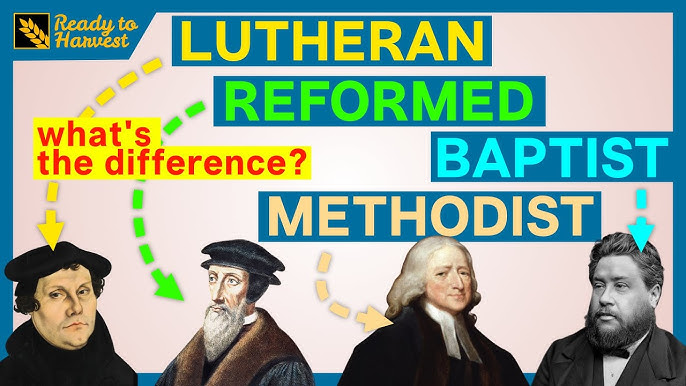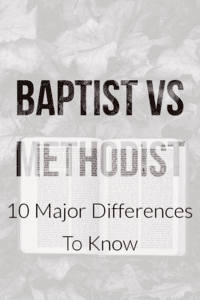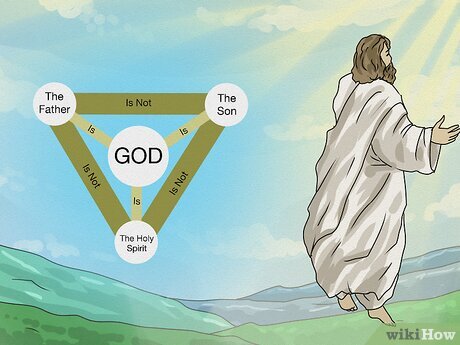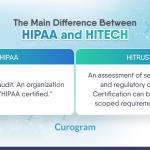Are you curious about the differences between Baptist and Methodist beliefs? Understanding these distinctions can be fascinating, especially if you’re exploring your own faith or just intrigued by religious diversity.
Imagine being able to grasp the core beliefs of these two denominations in a way that’s simple, yet enlightening. This knowledge not only broadens your perspective but also enriches your understanding of the world around you. Dive into this article where you’ll discover the unique characteristics that define Baptists and Methodists.
Whether you’re pondering spiritual questions or simply satisfying your curiosity, the insights here will keep you engaged and informed. Keep reading to uncover the nuances that make each denomination distinct and see how these differences might resonate with your own life experiences.
Origins And History
Emerging from the Protestant Reformation, Baptists and Methodists share Christian roots but differ in practices. Baptists emphasize believer’s baptism and congregational governance, while Methodists focus on personal faith development and a connectional church structure. These distinctions shaped their unique identities over time.
Understanding the origins and history of religious denominations can offer profound insights into their beliefs and practices. Both Baptist and Methodist traditions have rich histories, rooted in distinct beginnings that continue to shape their followers today. Let’s explore how these two Christian denominations came into being, and what makes their origins unique.Roots Of Baptism
The Baptist movement began in the early 17th century as a part of the Protestant Reformation. It emerged from English Separatists who sought a purer form of worship than what was offered by the Church of England. Baptists emphasized personal faith and the authority of the Bible. They believed that baptism should be a choice made by believers, not infants. This belief led to the practice of full immersion baptism, symbolizing a personal commitment to faith. Consider this: if you were living in the 1600s, the idea of choosing your faith might have seemed revolutionary. How might this decision affect your sense of freedom and individuality?Methodist Beginnings
The Methodist movement was born in the 18th century, spearheaded by John Wesley and his brother Charles. It began as a revival within the Anglican Church, focusing on personal holiness and social justice. Wesley’s methodical approach to Bible study and worship earned followers the nickname “Methodists.” Methodism grew rapidly, appealing to those seeking a more emotional and personal connection with God. Its focus on community and outreach was groundbreaking, promoting the idea that faith should inspire social change. Imagine being part of a community where your faith directly influences how you help others. How would this shape your daily actions and interactions? Both Baptists and Methodists have journeyed through history, adapting and growing while staying true to their roots. Their origins continue to offer valuable lessons about faith, choice, and community. As you reflect on these beginnings, consider how they resonate with your own spiritual journey. What values do you prioritize in your faith experience?
Core Beliefs
Understanding the core beliefs of Baptists and Methodists reveals their unique perspectives. While both are Protestant denominations, their theological foundations differ. These differences shape their worship practices and community life.
Baptist Theology
Baptists emphasize the authority of Scripture. The Bible is their ultimate guide. They believe in salvation through faith alone. Baptists practice adult baptism by immersion. This symbolizes death to sin and new life in Christ. Individual freedom in interpreting Scripture is important. Each congregation is autonomous, making decisions independently.
Methodist Doctrine
Methodists focus on grace and holiness. Grace is central in their beliefs. They follow the teachings of John Wesley. Methodists practice infant baptism and communion. They believe baptism symbolizes God’s covenant with humanity. Their doctrine stresses social justice and service. Methodists have a connectional structure, linking congregations together.
Baptism Practices
Baptism is a core practice in both Baptist and Methodist traditions. These denominations hold distinct views on its significance and execution. Understanding their differences enriches one’s knowledge of Christian practices.
Baptist Approach To Baptism
Baptists believe in full immersion in water during baptism. They view baptism as a public declaration of faith. This act symbolizes the believer’s cleansing from sin. Baptists insist on the individual’s personal decision to follow Christ. Therefore, they do not baptize infants. Instead, they wait until the person can make an informed choice.
Methodist Baptismal Practices
Methodists practice baptism in various forms, including sprinkling and pouring. They accept infant baptism, reflecting God’s grace. This practice welcomes the child into the Christian community. Methodists see baptism as a sign of God’s promise. It symbolizes the beginning of a lifelong journey of faith. They emphasize the community’s role in nurturing the baptized individual.

Worship And Liturgy
Baptists emphasize personal faith and congregational autonomy. Their worship is less structured. Methodists follow a more structured liturgy, focusing on grace and communal worship. Both traditions highlight the importance of prayer and hymns, yet differ in their approach to rituals and church governance.
Worship and liturgy form the heart of Christian practice. They shape how believers connect spiritually. Both Baptists and Methodists have distinct ways of worship. These traditions reflect their unique histories and beliefs. Understanding these differences helps us appreciate each denomination’s approach to faith.Baptist Worship Style
Baptist worship tends to be simple and informal. The focus is on the sermon. Preaching the Bible is central. Services often start with hymns. Singing is a vital part of the experience. Music ranges from traditional hymns to contemporary songs. Prayers are personal and unscripted. There’s an emphasis on personal relationship with God. Baptists don’t follow a strict liturgy. Each service can vary widely. This flexibility allows for personal expression. It suits the diverse Baptist community.Methodist Worship Traditions
Methodist worship follows a structured liturgy. The Book of Worship guides the service. It includes prayers, hymns, and readings. Methodists use a mix of traditional and contemporary music. Singing is a communal experience. Hymns play a key role in worship. The sermon is important, yet shares focus with other elements. Methodists celebrate sacraments like Communion regularly. These sacraments are central to their faith practice. Services are planned yet flexible. They allow for both tradition and innovation. This balance makes Methodist worship unique.Church Governance
Baptist and Methodist churches differ in governance. Baptists emphasize local church autonomy, while Methodists have a hierarchical structure. These differences influence decision-making and leadership within each denomination.
Church governance is a fascinating topic that reveals how different denominations structure themselves and make decisions. It’s a bit like comparing different management styles in companies. Some are hierarchical, others are more democratic. Understanding these differences can give you insights into how each denomination operates and what values they emphasize. Let’s dive into the distinct ways Baptist and Methodist churches are governed.Baptist Church Structure
In Baptist churches, governance is often more localized and congregational. This means individual churches have a significant degree of autonomy. Each congregation decides its own policies, hires its own pastor, and manages its finances. In my experience attending a Baptist church, the community felt empowered. There was a strong sense of ownership because decisions were made by the members. You might appreciate how this structure allows for more direct involvement in church affairs. The downside? Sometimes it can lead to inconsistency in practices from one Baptist church to another. This raises an interesting question: Does such autonomy foster a more personalized worship experience, or does it create confusion?Methodist Church Organization
Methodist churches, in contrast, tend to be more centralized. They follow a connectional system, where local churches are part of a larger network. Decisions are made at various levels, from local congregations to regional conferences. When I attended a Methodist church, I noticed a sense of unity and shared purpose. Policies and practices were consistent across different churches. This can be comforting if you value stability and tradition. However, this structure might feel less personal. Do you think a centralized approach helps maintain order and consistency, or does it distance individual members from decision-making? In essence, Baptist and Methodist churches offer different experiences when it comes to governance. Whether you prefer autonomy or unity, both systems have unique qualities. Which do you think aligns more with your values and expectations?
Role Of Scripture
Scripture plays a significant role in distinguishing Baptist and Methodist beliefs. Baptists emphasize individual interpretation of the Bible. Methodists rely on tradition and reason alongside scripture for guidance.
The role of scripture is a defining element in many Christian denominations, shaping beliefs, practices, and community life. Understanding how different denominations interpret the Bible can offer deeper insights into their distinct faith expressions. Baptists and Methodists, both rooted in Protestant traditions, have unique approaches to scripture that influence their worship, teachings, and daily living.Baptist View On Scripture
Baptists hold the Bible in high regard, viewing it as the ultimate authority in all matters of faith and practice. They believe in the literal interpretation of scripture, emphasizing the inerrancy and infallibility of the Bible. This perspective often leads to a straightforward approach to biblical teachings, where personal interpretation is encouraged, but always within the context of the Bible’s perceived clear message. Growing up in a Baptist church, Sunday School was a pivotal experience. The focus was always on scripture memorization and understanding the Bible’s direct teachings. Have you ever considered how a literal interpretation might shape your worldview?Methodist Interpretation Of The Bible
Methodists approach scripture with a balanced perspective, considering tradition, reason, and experience alongside the Bible. They embrace a more interpretive reading, allowing for metaphorical and contextual understanding of scripture. This approach can lead to a more flexible application of biblical teachings in contemporary life. In my experience attending a Methodist service, the sermon often connected biblical stories to modern life challenges. This approach encouraged me to see the Bible as a living document, relevant to today’s issues. How might a contextual reading of scripture influence your daily decisions and interactions? Understanding these perspectives can deepen your appreciation for the diversity within Christianity. Whether you lean towards a literal or interpretive approach, engaging with scripture can offer valuable insights and guidance in your spiritual journey. How do you see the role of scripture in your life?Social And Cultural Influence
Baptists and Methodists have unique social and cultural influences. Baptists emphasize individual faith and personal relationship with God. Methodists focus on community and social justice, often engaging in outreach programs. Both denominations shape their members’ lives in distinctive ways, reflecting their core beliefs and traditions.
Understanding the social and cultural influence of religious denominations like the Baptists and Methodists can offer you insights into their role in shaping communities. These influences extend beyond just spiritual guidance, affecting social norms, education, and even local economies. You might find yourself wondering how these two groups, both rooted in Christian traditions, differ in their societal contributions.Impact Of Baptists
Baptists have a long history of advocating for religious freedom and separation of church and state. This principle has significantly influenced American culture, promoting the idea that individuals should choose their own faith paths without government interference. Growing up in a Baptist community, you might notice how these values encourage you to think independently and make personal choices. Baptists often place a strong emphasis on community service, focusing on local missions. They support initiatives like food banks, homeless shelters, and educational programs. If you’ve ever volunteered with a Baptist group, you know the satisfaction of making a tangible difference in your community. Education is another area where Baptists have left their mark. They’ve established numerous colleges and universities that focus on integrating faith with learning. These institutions aim to develop not just knowledge, but also character and values, shaping future leaders.Methodist Contributions
Methodists, on the other hand, have been pivotal in promoting social justice. Their advocacy for issues like civil rights and gender equality has had a profound impact on society. Imagine attending a Methodist service where the sermon inspires you to take action on pressing social issues. One of the standout features of Methodist influence is their commitment to global missions. They emphasize outreach programs that address health, education, and poverty around the world. You might be inspired by their dedication to making a difference on a global scale, encouraging you to think beyond your local community. Methodists have also made significant contributions in healthcare and education. Many hospitals and schools were founded by Methodists, aiming to provide care and learning opportunities to all, regardless of background. This focus on inclusivity and service can shape your perspective on how faith intersects with everyday life. So, what role do you see these denominations playing in your own community? How do these social and cultural influences shape your views and actions? By understanding their contributions, you can appreciate the broader impact of religious beliefs on society.Modern Differences
Modern differences between Baptists and Methodists reflect their evolving practices. Both denominations have distinct approaches in contemporary worship and community activities. These differences highlight unique aspects of their faith and practice.
Contemporary Baptist Practices
Baptists emphasize individual faith and personal relationships with God. Worship often includes dynamic preaching and active participation. Many Baptist churches focus on community service and evangelism. Baptists typically practice believer’s baptism by immersion. This symbolizes a personal commitment to faith.
In modern settings, Baptist churches may vary in worship style. Some embrace traditional hymns, while others use contemporary music. Technology plays a role, with many churches live-streaming services. This attracts younger congregations and those unable to attend in person.
Current Methodist Trends
Methodists focus on social justice and community outreach. They engage in various mission projects locally and globally. Worship services often include liturgy, hymns, and sacraments. Methodists typically practice infant baptism and open communion. This reflects their inclusive approach to faith.
Today, many Methodist churches embrace modern worship styles. They incorporate contemporary music and multimedia presentations. This approach aims to connect with diverse congregations. Methodists often hold small group meetings for fellowship and spiritual growth. These gatherings foster community and personal connections.
Frequently Asked Questions
What Are The Core Beliefs Of Baptists?
Baptists believe in the authority of the Bible and salvation through faith in Jesus Christ. They practice believer’s baptism by immersion. Baptists emphasize individual soul liberty and the autonomy of local churches. They also value the separation of church and state, ensuring religious freedom for all.
How Do Methodists Approach Worship Services?
Methodists follow a structured form of worship that includes hymns, prayers, and sermons. They often use the Book of Worship as a guide. Communion is celebrated regularly and is open to all. Methodists emphasize grace and social justice in their teachings and community activities.
Do Baptists And Methodists Share Common Historical Roots?
Yes, both Baptists and Methodists have roots in the Protestant Reformation. They evolved separately with distinct beliefs and practices. Baptists emerged from English Separatism, while Methodism was founded by John Wesley in the 18th century. Despite differences, both share a commitment to Christian faith and practice.
How Do Baptists And Methodists View Baptism?
Baptists practice believer’s baptism, immersing individuals who profess faith in Jesus. Methodists accept infant baptism and adult baptism, using sprinkling, pouring, or immersion. Baptists see baptism as a public declaration of faith. Methodists view it as a sacrament, emphasizing God’s grace and covenant with believers.
Conclusion
Exploring Baptist and Methodist differences helps us understand their unique beliefs. Baptists emphasize individual faith and full immersion baptism. Methodists focus on grace, structured worship, and infant baptism. Both share a love for community and scripture. They offer diverse ways to experience Christianity’s teachings.
Respect and understanding enrich our knowledge of these traditions. Each path offers a unique spiritual journey. They invite believers to deepen their faith. Learning about both can inspire personal growth. Embrace the diversity within Christianity. It strengthens faith and unity among believers.

I’m someone who’s always been fascinated by how small differences can lead to big understanding. That’s why I love writing “What’s the difference between…” content; it helps me explore topics from multiple angles and explain them in a clear, practical way. Whether it’s tech, productivity, business, or everyday decisions, I enjoy making complex ideas easier to compare, understand, and act on.










